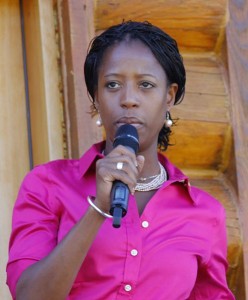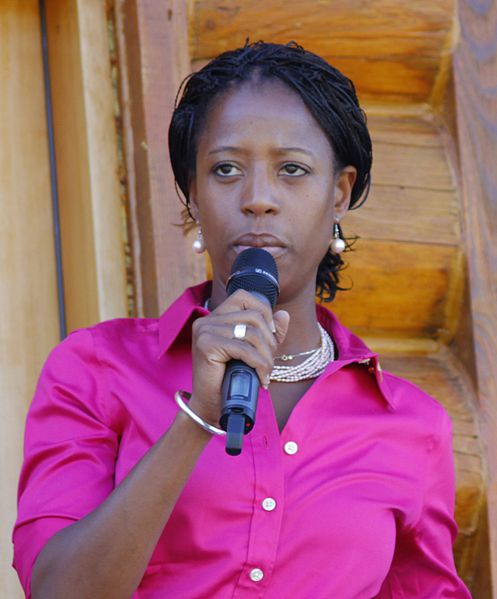 What do a black Mormon mayor in Utah and a gay real estate broker from the Boston suburbs have in common?
What do a black Mormon mayor in Utah and a gay real estate broker from the Boston suburbs have in common?
This year, they’re both fighting for coveted seats in the U.S. Congress – as loud and proud members of the G.O.P.
In a party whose national membership is over eighty percent white and whose platform still includes “traditional marriage” as a central platform, a flurry of candidates in the upcoming Congressional election serve to diversify the Republican image while simultaneously identifying wholeheartedly with its principles.
Mia Love, raised in a Haitian American household in Connecticut and married to a Mormon missionary, rose to prominence when she ran for mayor in 2010 in her husband’s Utah hometown and won handily. A Tea Party favorite, Love has rejected the notion that her racial background is in any ways anathema to her political ideology, instead noting that her political success in Saratoga Springs, where white voters constitute over ninety-six percent of the electorate, has hinged on her identity as a passionate conservative and devout Mormon. Since her speech at the Republican National Convention last month, Love has been praised and re-tweeted by GOP giants, including a celebrated nod by Sarah Palin.
Running for a seat on the other side of America, Massachusetts’ Richard Tisei hopes to be America’s first openly gay Republican congressman – a representative of a party that still celebrates “traditional marriage” as a tenet of its party platform. While a proponent of gay marriage, Tisei nonetheless identifies firmly with the Republican party and hopes to turn his state’s liberal 4th district red for the first time in fifteen years.
Love and Tisei have entered the fore of Republican politics as the party seeks to diversify its image in time for a tight Congressional race in November. At the Republican National Convention last month, Love’s speech accompanied those by other women and politicians of color, including former Secretary of State Condoleezza Rice and New Mexico Governor Susana Martinez. Likewise, this was the first RNC in history in which LGBT Republicans convened openly in social spaces and in which the Log Cabin Republicans, a pro-equality GOP caucus, held its own gatherings at the convention.
Yet a holistic look at things puts into question any notion that the party has made strides toward diversity and achieved any semblance of a pluralistic image. A glance at the numbers says everything: despite the touting of Mia Love as a heroine of GOP values, only 47 of the convention’s delegates – that’s 2.1% — were black and less than 40% were women.
Furthermore, the GOP continues to struggle heavily with voter outreach to communities of color, and has largely sidestepped any form of outreach to LGBT voters beyond niche audiences at the RNC and a few nationwide pro-equality Republican groups. A recent poll by the Wall Street Journal reported that Mitt Romney will receive 0% of the black vote – probably a slight underestimation, but nonetheless telling of how racially fragmented electoral politics have remained in the United States.
The visibility of candidates of color, and in Tisei’s case LGBT folks in the party, should be taken lightly: do these candidates really represent a changing demographic within America’s scarlet center? Or do their backgrounds present rare opportunities for their party’s finest to tout diversity without disrupting the lilly-white, hetero-centric character of conservative politics?
